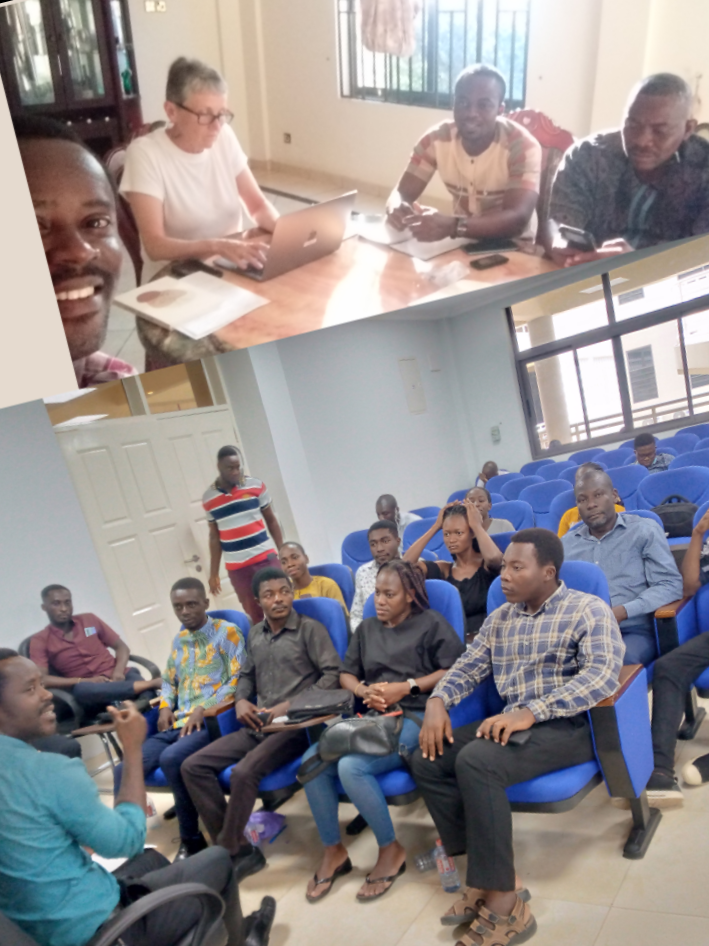Finding Our Voice: What 12 Ghanaian Sign Language Interpreters Taught Us About Growth, Grit, and Recognition
When we started Interpreter Trainers Ghana (ITG), our dream was simple:
To strengthen the bridge between the Deaf and hearing worlds through skilled, confident interpreters.
But over time, we began asking ourselves a deeper question —
How are interpreters themselves being supported, recognised, and empowered?
That question led us to a survey of Ghanaian Sign Language (GhSL) interpreters — 12 passionate professionals working across classrooms, communities, and universities from six regions of Ghana.
And what they told us was honest, eye-opening, and deeply inspiring.
✋ “We love what we do — but we need to grow.”
That was the tone of almost every response.
Almost all the interpreters said they feel confident in GhSL vocabulary and in interpreting from voice to sign—the “heart” of their work. But several admitted they struggle with interpreting from sign to speech, especially in high-pressure environments like classrooms or community meetings.
One respondent rated their confidence in voicing as 1 out of 5.
Not because they lacked skill — but because they lacked structured support and feedback.
That humility and self-awareness reminded us of why ongoing professional development (CPD) is so vital, and that interpreting should not just be about language but also about stamina, context, and ethical decision-making in real time.
💭 The everyday reality
Behind every smooth and effective interpretation job lies a story of effort:
Late nights preparing, switching between roles, working across large classes, and sometimes, doing it all with limited resources.
The survey made it clear that interpreters face three recurring challenges:
Limited access to continuous training
Low recognition of the profession
Inadequate pay and working conditions
As one interpreter put it, “We’re seen as helpers, not professionals.”
That simple statement captures a much bigger truth — the profession needs visibility, respect, and policy support to thrive.
📚 What interpreters are asking for
If you think interpreters just want more training, you’re only half right.
Yes, they crave opportunities to learn — advanced GhSL, medical and legal interpreting, DeafBlind communication, inclusive education, and even the use of technology in interpreting.
But they’re also asking for something more human: mentorship, connection, and community.
They want to learn from each other, to reflect on real cases together, to share what it feels like when you get it right — or when you don’t.
Many suggested regular peer workshops, online resources, and even a national directory to help Deaf people find interpreters more easily.
🔧 How ITG is responding
The good news? We’re already taking steps.
Based on these insights, ITG is developing a 12–18 month national CPD framework — a structured programme that includes:
Advanced GhSL and interpreting into speech
Classroom interpreting and inclusive strategies
Deaf culture, ethics, and assistive technology
Real-world practice with supervision and feedback
We’re also working on a mentorship network to connect early-career interpreters with seasoned professionals — because growth happens best when we learn together.
And on the advocacy front, ITG is partnering with Deaf organizations and organizations that work with interpreters to push for recognition and regulation of the interpreting profession in Ghana.
💡 The bigger picture
This survey wasn’t just about training. It was also about recognition.
It reminded us that interpreters are not just language workers — they are the voice of inclusion, access, and equality.
When they thrive, Deaf Ghanaians gain greater access to education, healthcare, and justice. When they struggle, communication barriers persist.
So, investing in interpreters isn’t charity. It is justice.
❤️ A note of gratitude
To the 12 interpreters who shared their stories — thank you.
Your honesty and courage are shaping the future of our field.
And to everyone reading this — if you’re a policymaker, educator, or ally — this is your invitation to stand with Ghana’s interpreting community.
Let’s build a world where interpreters are seen, supported, and celebrated — not just as service providers, but as partners in inclusion.
Follow Interpreter Trainers Ghana (ITG) for updates on training, mentorship, and advocacy — and join us in amplifying the voices that make communication possible.
#SignLanguage #InterpreterTraining #DeafInclusion #Ghana #HumanStories #InterpreterTrainersGhana #ProfessionalGrowth #Accessibility




